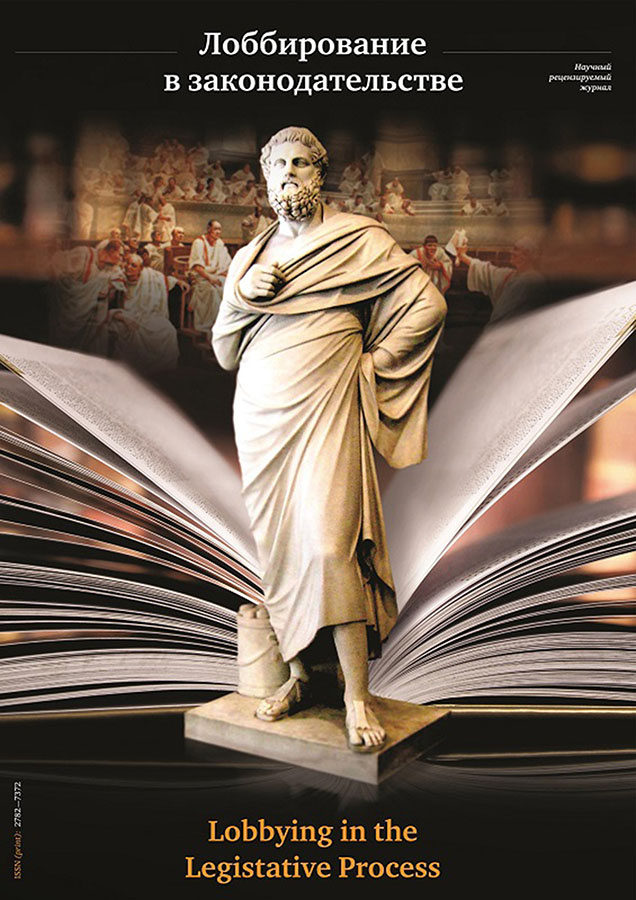Does Modern Corporate Law Require a Minimum Share Capital?
- Authors: Belikova K.M.1
-
Affiliations:
- Kutafin Moscow State Law University (MSAL)
- Issue: Vol 4, No 2 (2025)
- Pages: 17-24
- Section: Private law (civil)
- URL: https://journals.eco-vector.com/2782-7372/article/view/687800
- DOI: https://doi.org/10.33693/2782-7372-2025-4-2-17-24
- EDN: https://elibrary.ru/URDOSB
- ID: 687800
Cite item
Abstract
Using examples from foreign legislation and doctrine, the author of this article addresses the legal and practical significance of requirements for the minimum size of authorized capital for business entities and the feasibility of maintaining it in current legislation. The article takes into account current state of the development of the legal mechanisms and trends toward automation and digitalization of law, as well as the subjective and objective determinants of the world, and uses the dialectical method and other general and specific scientific methods (such as comparative legal, historical analysis, synthesis, etc.). The result of this work is, among other things, a conclusion that the minimum authorized capital has largely lost its practical significance for certain organizational and legal business forms (for example, Unternehmergesellschaft (UG) and other limited liability and joint stock companies, excluding public ones and their equivalents), but also a recommendation to consider alternative solutions based on the specifics of each case. In this regard, it is practically justified to shift the emphasis in modern legal regulation towards using other progressive mechanisms, as indicated in the article and elsewhere, as more consistent with global trends, while maintaining the symbolic role of the fixed authorized capital as an indicator of the seriousness of founders' intentions.
Full Text
About the authors
Ksenia M. Belikova
Kutafin Moscow State Law University (MSAL)
Author for correspondence.
Email: KMBelikova@msal.ru
ORCID iD: 0000-0001-8068-1616
SPIN-code: 2541-3498
Dr. Sci. (Law), Professor; Professor, Department of Entrepreneurial and Corporate Law
Russian Federation, MoscowReferences
- Sukhanov E.A. Comparative corporate law. Moscow, 2016.
- Stepanov D.I. New provisions of the Civil Code on legal entities. Law. 2014. No. 7: 55. (In Rus.)
- Corporate law. Textbook. A.N. Besedin (ed.). Moscow: Prospekt, 2025. 485 p.
- Soshnikova M: Civil law and economic aspects of business reputation. Law and Economics. 2008. No. 1. Pp. 26–33. (In Rus.)
- Solntsev A.M., Alisievich E.S., Baltutite I.V. et al. Law of the European Union. Textbook and practical course for bachelor's and master's degrees. A.Kh. Abashidze, A.O. Inshakova (eds.). Moscow: Yurayt, 2016. Pp. 162–163.
- Dudycz T., Mielcarz P. The capital maintenance regime matters for creditors. Borsa Istanbul Review. 2023. Vol. 23. Issue 4. Pp. 980–999. doi: 10.1016/j.bir.2023.05.003.
- Uchuvatova V.V. Information and guarantee functions of the authorized capital of business entities. Lawyer. 2024. No.7. Pp. 15–20. (In Rus.). doi: 10.18572/1812-3929-2024-7-15-20.
- Timofeev I.A. The doctrine of piercing the corporate veil in the USA. Questions of Russian Law. 2019. Issue 4. Pp. 225–252. (In Rus.)
- Kulagin M.I. State-monopolistic capitalism and a legal entity. In: Selected works on joint-stock and trade law. 2nd ed., rev. Moscow: Statute, 2004. 363 p.
- Sidorenko E.L. Decentralized autonomous organizations in the system of modern law: towards a problem statement. Lex Russica. 2024. Vol. 77. No. 1. Pp. 119–132. (In Rus.). doi: 10.17803/17295920.2024.206.1.119-132.
- Oleinik E.V. Digitalization of corporate law: current trends. Civil Law. 2023. No. 4. Pp. 32–36. (In Rus.). doi: 10.18572/2070-2140-2023-4-32-36.
- Kantor N.E. The impact of digitalization of the economy on the institution of beneficial ownership. Economy and Law. 2025. № 2 (577). Pp. 39–54. (In Rus.)
- Kantor N.E. Transparency of asset ownership and its importance for the real sector of the economy. Courier of Kutafin Moscow State Law University. 2024. № 8 (120). Pp. 174–181. (In Rus.)
Supplementary files









